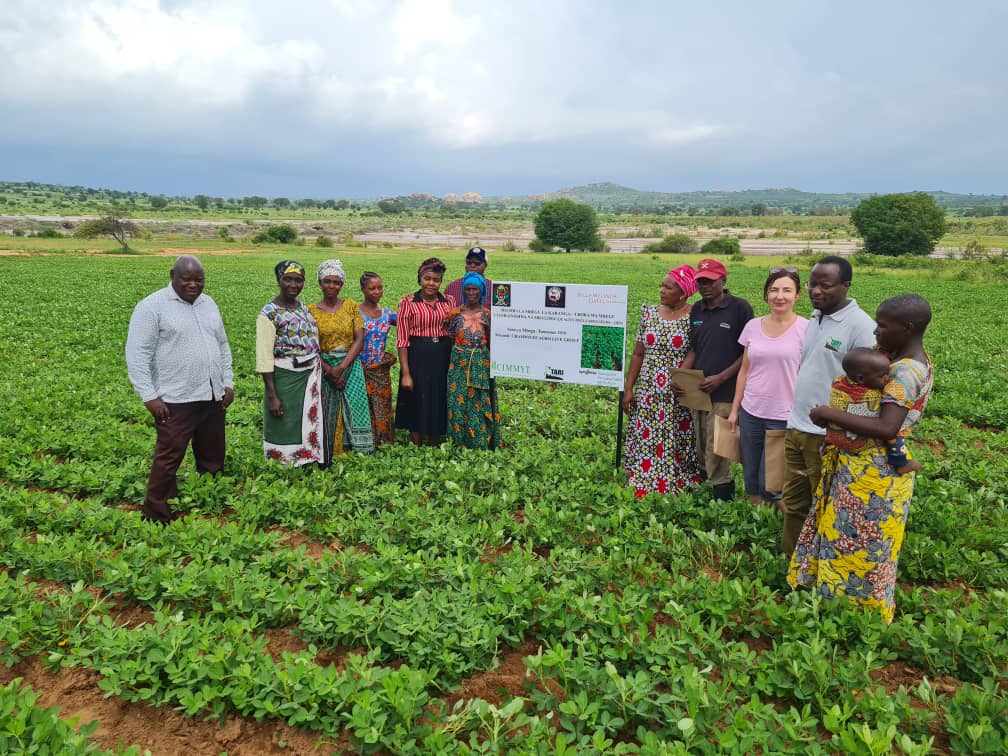The distinguished guest speaker for the 12th edition of Catalysts of Change: Women Leaders in Science was Cynthia E. Rosenzweig.
She is a senior research scientist at the NASA Goddard Institute for Space Studies, an adjunct research scientist at the Columbia Climate School, and the 2022 World Food Prize recipient for her groundbreaking work in climate change and agriculture. Additionally, she co-founded the Agricultural Model Intercomparison and Improvement Project (AgMIP), uniting over 1,000 global researchers focused on climate modeling and its impact on agriculture.
In his welcome address, CIMMYT Director General Bram Govaerts highlighted Cynthia’s exceptional leadership in addressing climate impacts on agriculture, cities, and conservation.
Bram mentioned that the CIMMYT-organized Catalysts of Change forum highlighted women leaders in all capacities, fields, and disciplines because “we are convinced we need more women leaders in science organizations such as ours.” He stressed that to achieve gender balance and diversity, it is essential to provide women with tools and role models, stating: “You can’t be what you can’t see.”
Collaboration is how we cultivate the seeds of progress
Giving a glimpse into her career journey, Cynthia shared how—long before the World Food Prize transformed her life—she and her husband resided on a farm in Tuscany, Italy, where she “fell in love with agriculture and the production of food.” They raised livestock and harvested tomatoes, olives, and grapes. Upon returning to the United States, she worked on a smallholder farm in the Hudson Valley, raising sweet corn and field corn, and later pursued studies in agriculture and food agronomy while raising two children. Her work on climate–crop interactions, notably in collaboration with NASA in the 1980s, contributed to early climate science. In 2010, she co-founded AgMIP, a global network of agricultural modelers focused on researching climate change impacts and utilizing AI and data to improve farming practices.
“Agriculture can’t just be an intellectual exercise. We also have to provide science and technology for stakeholder-driven adaptation, mitigation, and implementation solutions,” she said. However, these advances are only possible with collaboration.
“Advancements in agriculture only happen through collaboration between scientists, policymakers, and farming organizations. It is the only method to relay the information in our various AgMIP models to farmers globally—those who genuinely need them. Ultimately, collaboration is how we cultivate the seeds of progress,” she shared.
The four Aha moments
Cynthia highlighted four key insights that have influenced her career and research trajectory. First, she emphasized “differential vulnerabilities,” indicating that lower-latitude and lower-income countries face more risks from climate change. “Hence, there is a greater need for continuous engagement with stakeholders, and a need for interdisciplinary teams to develop and respond to climate change challenges together,” she said.
The second Aha moment is that using an ensemble of multiple crop models yields more accurate predictions. “That’s because biases in one model cancel out biases in another and can bring fuller understanding across the suite of models,” she said.
The third revelation was about “Faster and Worse” – how climate change is accelerating, leading to increased extreme weather events that threaten agriculture and food security.
The fourth moment of truth for Cynthia was the recognition that global food systems account for one-third of human-caused greenhouse gas emissions. “As people working in agriculture and food, we have to work on solutions to reduce greenhouse gas emissions,” she explained.
The ‘Ps’ for building research and careers
Proposals, projects, posters, presentations, publications, professional organizations, public relations, and persistence. These are some of the important factors for building a successful career in science and research, according to Cynthia.
She highlighted the importance of relationship building and positively promoting one’s work while remaining resilient through challenges.
In a follow-up Q&A with Vimbaye Grace, Scientist and Crop Modeler at CIMMYT, Cynthia spoke about the need for mentoring and networking for next-generation women in science. “We have to be deliberate and specific about it. It can’t just be hand-waving,” she said. She touched upon the importance of work–life balance and how persistence is crucial for the long haul.
Regarding innovations in the field of modeling, she said: “I’m a very big fan of models because they are integrators of processes.” She suggested the need to fast-track field trials, foster greater collaboration between modelers and field trial experts, and integrate advanced modeling for more effective responses to climate challenges.

 Capacity development
Capacity development 
